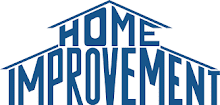It is a legal procedure of transferring property from one individual to another. This administrative process that goes behind the scene is also known as conveyancing. Qualified solicitors ensure that the seller has a valid title that can be transferred to the purchaser to pay the agreed price. This process must be carried out correctly. Conveyancing is a legal formality that acknowledges the transfer of property from one individual to another.
When to choose a conveyancer?
As soon as you’re ready to transfer the property with the appropriate transaction, appoint a conveyancing solicitor. It will build a team for you to have a reliable trade. Also, it is the job of a conveyancer to protect the client. Your best interest becomes their primary job, and these solicitors work keeping your best interest in mind.
Even if the transaction goes wrong or any other problem arises conveyancer is prepared to protect you from the wrath of an erroneous transaction. The solicitor will also try to reduce the impact so the client will face minimum damage.
Not all conveyancers are equal. Conveyancing can be done by a professional real estate conveyancer or a solicitor who specialises in conveyancing. In most cases, Australians hire licenced conveyancers more than solicitors. However, as the client, you can choose what suits your interest.
If you’re unsure about payments and fees for the conveyancers, remember that there are no issues concerning any formalities if the transaction is straightforward. The conveyancer will charge cheaper fees. However, if there’s a property dispute or any other legal issue involved that can cause disturbance in the deal, the conveyancer will demand a higher fee.
Some conveyancers can also be solicitors, which will provide you best of both. Some law firms even hire registered conveyancers to handle all the property-related businesses.
What type of property is your specialisation?
Check the specialty of your conveyancer. Know what kind of property conveyances they’ve handled in the past. Especially if you have a critical issue in your transaction, make sure the conveyancer knows how to deal with the complications. Ask questions about their choice of field and past experiences. Some even focus on housing properties, whereas others focus only on commercial properties. Knowing it beforehand can help you.
What will be the cost? Ask for a breakup of the fees
Discuss with the conveyancer about fees and payment. Make sure to get a clear idea from them about the kind of fees they will be charging. Ask for a breakup, let them specify amounts of particular functions and backend operations. Have a clear and transparent monitory discussion with your solicitor or conveyancer. It will help you in understanding how much are you paying them and why are you paying them.
How will you communicate with me, and how often?
Make sure you trust your conveyancer. Ask them how often will they communicate with you and what will be their preferred mode of communication. Discuss beforehand if you want to be personally in any particular formality or if you have any concerns. Make sure you and your conveyancer are on the same page. Discuss the decisions they can take on behalf of you. Also, as a client, you can initiate conversations, especially if you have any concerns.
What to expect on the day of settlement?
Give the conveyancer a clear idea about what you are expecting on the day of settlement. Ask them what is to be expected from a particular transaction. Discuss how will you handle the outcomes, both favourable as well as non-favourable.
If you’re searching for a conveyancer in Dee-why or any other part of Australia, make sure to go for a background check on your conveyancer. If they’re associated with a firm, ask about their work and performance. Contact their previous clients and ask about their experience. Legal formalities can be complex, and not everyone understands them, so when you involve a professional in your transaction, know if they’re worthy of the trust you’re putting in them.








0 Comments